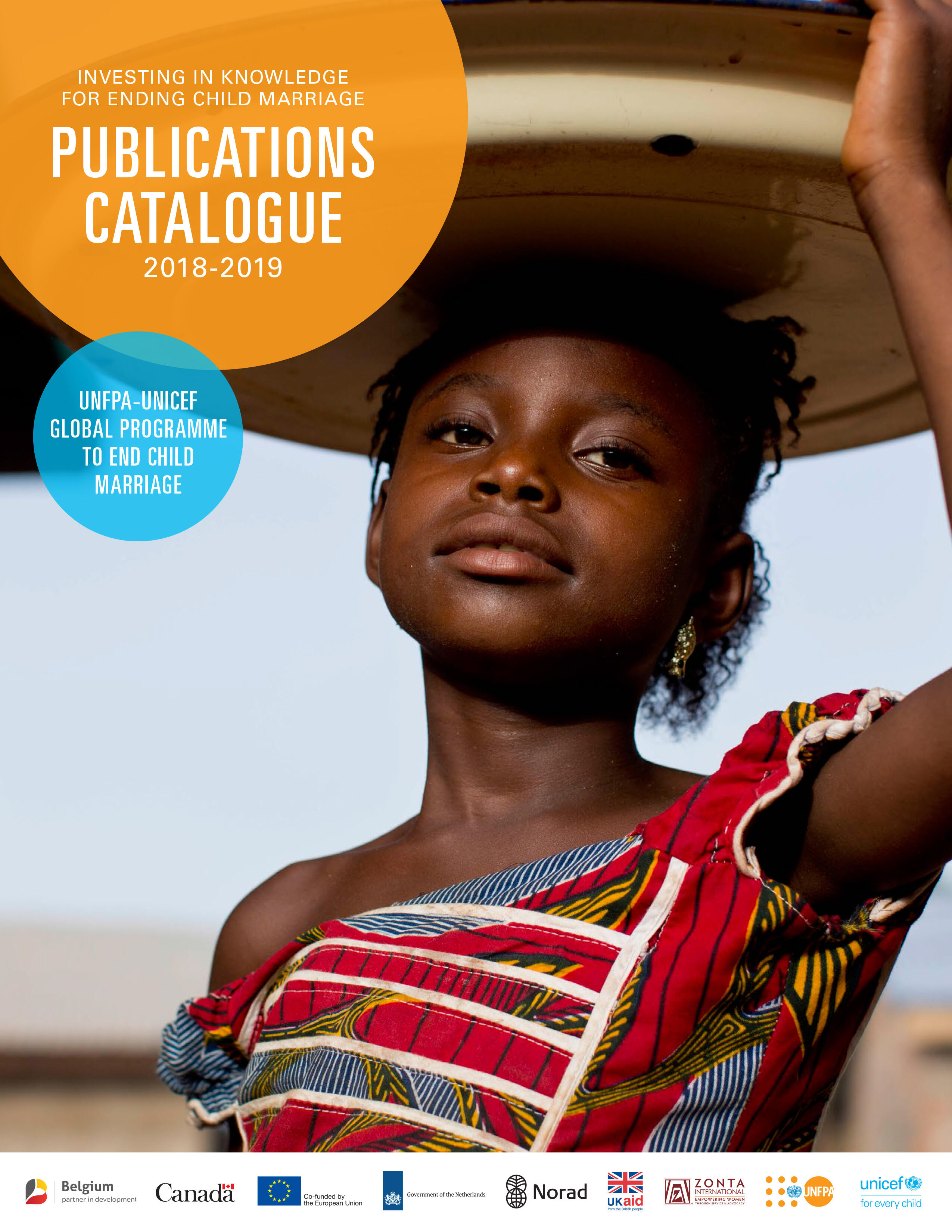
Investing in Knowledge for Ending Child Marriage Publications Catalogue 2018-2019
Resource date: 31 December 2019
Author: UNFPA and UNICEF
The UNFPA-UNICEF Global Programme to Accelerate Action to End Child Marriage is turning commitments into tangible action for children. Managed by the United Nations Population Fund (UNFPA) and the United Nations Children’s Fund (UNICEF), it promotes the right of girls to delay marriage, addresses the conditions that keep the practice in place, and cares for girls already in union. The Global Programme is being implemented in 12 countries that have a high prevalence or high burden of child marriage. These are Bangladesh, Burkina Faso, Ethiopia, Ghana, India, Mozambique, Nepal, Niger, Sierra Leone, Uganda, Yemen and Zambia.
Investing in data and generating and disseminating evidence on what works to prevent child marriage is essential to developing smart, effective policies and programmes that can lead to large-scale change. To this end, one of the five outcome areas of the Global Programme is to generate robust data and use the evidence to inform programmes and policies relating to adolescent girls. A total of 72 publications are presented in this catalogue, that is produced by the Global Programme Support Unit. It showcases work from 2018 and 2019 by the headquarters, regional and country offices of the Global Programme, and from other programmes that work towards ending child marriage led by UNFPA, UNICEF and the United Nations Entity for Gender Equality and the Empowerment of Women (UN Women).